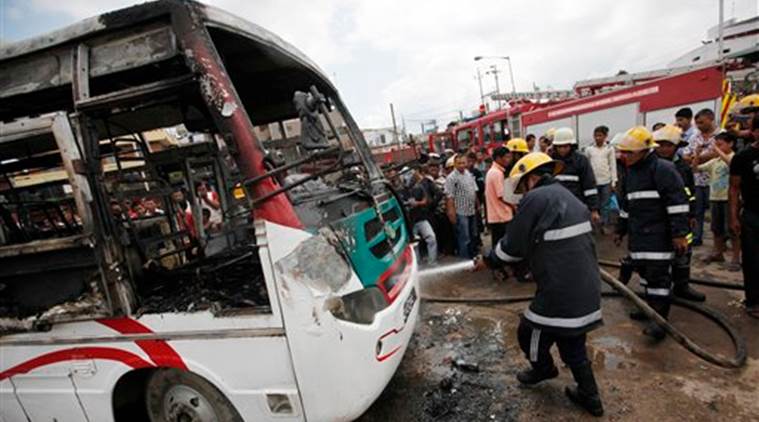India is “dissatisfied” with the new Constitution adopted by Nepal on Sunday because it is “not broad-based” or “equal” and does not represent “two-thirds of the population”, comprising Madhesis and Janjatis, according to official sources.
India believes that an “unrepresentative Constitution” is at the heart of the protests that has claimed over 40 lives in Nepal, leading to concern in South Block, the sources said.

“It leads to an unstable border, which is an open border, and affects the lives of people on both sides,” an official source told The Indian Express.
Story continues below this ad
Madhesis are those living in southern Nepal, in the Terai region bordering India, while Janjatis are the indigenous tribal people from the country’s hills.
[related-post]
”The fact that not a single Madhesi or Janjati leader has signed up shows the dissatisfaction among Nepal’s regional parties. This disaffection, especially in the Terai region, is spilling over to the Indian side, and that is creating concern,” the source said.
On Saturday, Foreign Secretary S Jaishankar had returned from Kathmandu after holding discussions with all political parties during which he conveyed India’s “concern” to the top political leadership and asked them to adopt a more “broad-based” approach.
“Prime Minister Narendra Modi had told Nepalese leaders last November that the Constitution should be a bouquet, which has flowers from every region and community. That has not happened in the present Constitution,” sources said.
Story continues below this ad
Reacting officially to the promulgation of the Constitution, the Ministry of External Affairs said: “Throughout the process of Constitution-making in Nepal, India has supported a federal, democratic, republican and inclusive Constitution. We note the promulgation in Nepal on Sunday of a Constitution.”
However, the MEA expressed concern “that the situation in several parts of the country bordering India continues to be violent”. Our Ambassador in Kathmandu has spoken to the Prime Minister of Nepal in this regard,” the ministry said.
It added that issues on which there are differences should be resolved through dialogue in “an atmosphere free from violence and intimidation”, and institutionalised in a manner that would enable broad-based ownership and acceptance.
“This would lay the foundation of harmony, progress and development in Nepal. We extend our best wishes to the people of Nepal,” the statement added.
Story continues below this ad
Nepal’s Constitution was endorsed on Sunday by over 85 per cent of the 601 members of the Constituent Assembly, but without the stamp of approval of at least 60 Madhesi and Janjati representatives.
During his two-day visit, Jaishankar had called on Nepal President Ram Baran Yadav and Prime Minister Sushil Koirala, and met CPN-UML chairman K P Sharma Oli and UCPN-Maoist chief Prachanda.
The Foreign Secretary had also met a number of agitating leaders of Terai, including Mahantha Thakur, chairman of Terai Madhes Democratic Party; Upendra Yadav, chairman of Federal Socialist Party Nepal; and Bijaya Gachhadar, chairman of Madhesi Peoples Rights Forum Democratic.
“India has always been strongly supporting the Constitution-making process in Nepal and we would like its completion to be an occasion of joy and satisfaction, not agitation and violence,” Jaishankar had said on Saturday.

 Nepalese firefighters spray water to douse a burned out bus in Kathmandu. (AP Photo)
Nepalese firefighters spray water to douse a burned out bus in Kathmandu. (AP Photo)






